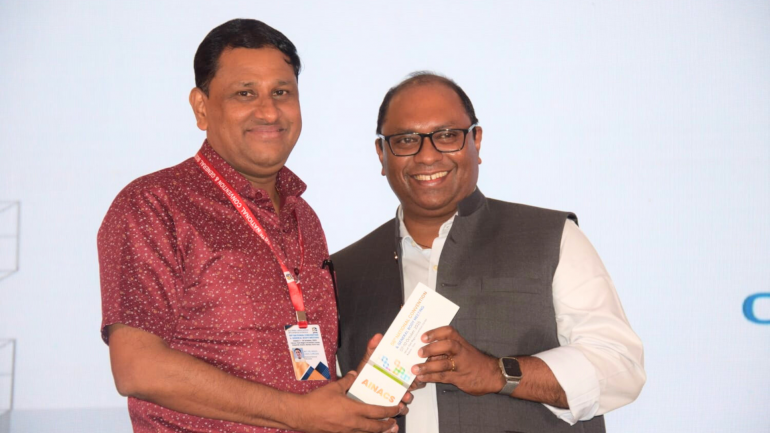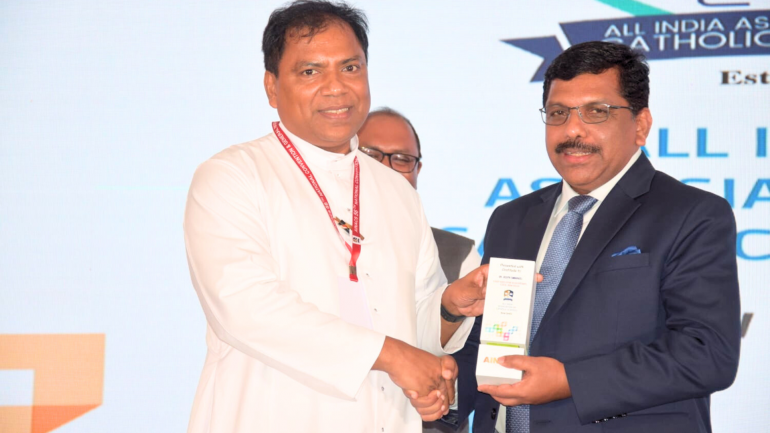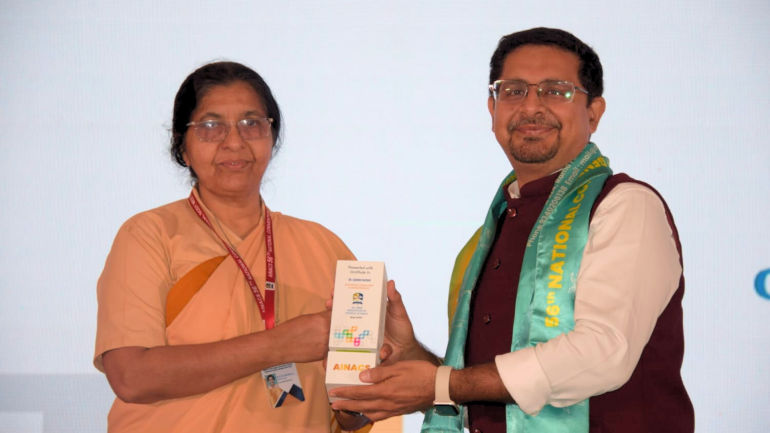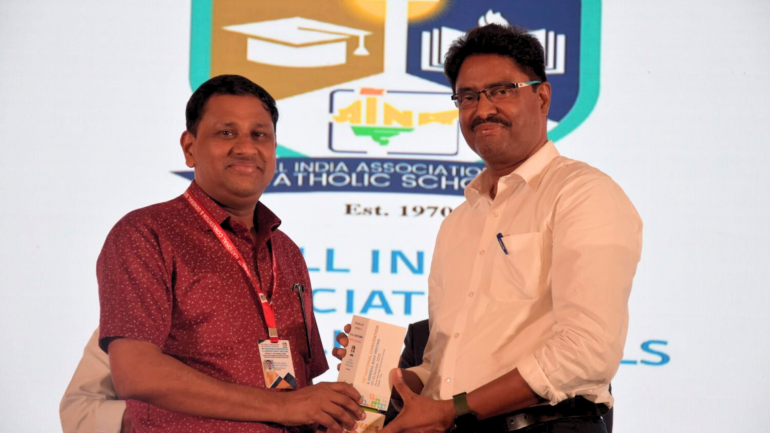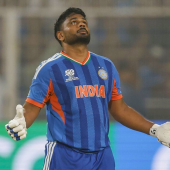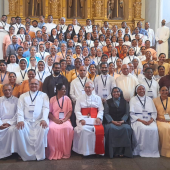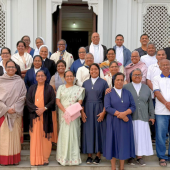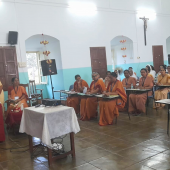India: National Convention stresses Holistic Engagement & Social Justice in Catholic Education
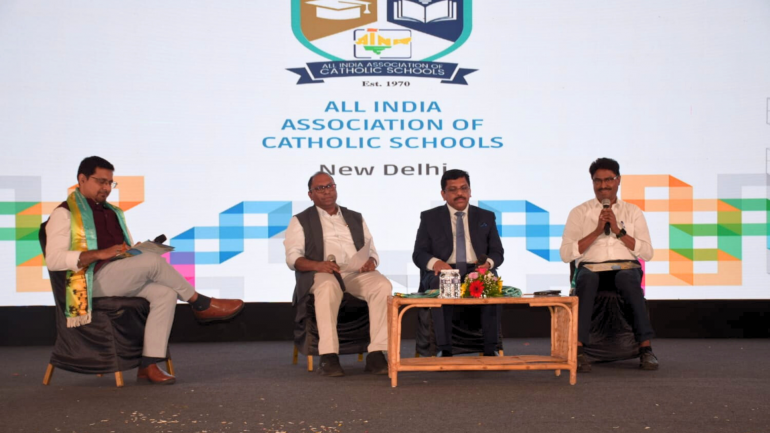
On Day 2 of the three-day 56th National Convention of the All India Association of Catholic Schools (AINACS), currently underway in Goa from October 7 to 10, a thought-provoking panel discussion on “Stakeholder Management” emerged as one of the highlights of the event.
Moderated by Dr. Gaurav Kapoor, Education Consultant and Entrepreneur, the panel featured Dr. Joseph Emmanuel, Chief Executive and Secretary of CISCE, New Delhi; Fr. Dr. Viju CMI, Pro Vice-Chancellor of Christ University, Bengaluru; and Fr. Dr. A. Sahaya Philominraj, SJ, Director of IDEAS, Madurai.
The panelists shared valuable insights on the evolving educational landscape, emphasizing the roles of students and teachers and underscoring the importance of equity and social justice in education.
Dr. Joseph Emmanuel: “Education for Life, Not for Exams”
Dr. Joseph Emmanuel emphasized that “the child is the most important stakeholder in education,” stressing the need to recognize each child’s uniqueness through close interaction with the child and family. “Counselling is a must,” he said, highlighting that education should prepare children for life, not just examinations, fostering analytical skills, resilience, and teachers’ adaptability.
On stakeholder engagement, he noted, “Bringing different stakeholders together, parents, society, and regulatory bodies, is one of the most challenging tasks for school leaders.” Leaders must persuade and create with vision rather than merely comply.
Focusing on parents, he remarked, “No reform is possible without taking parents into confidence… most parents today know only the language of marks,” stressing the need for repeated communication to convey the real purpose of education. Dr. Emmanuel cautioned that education should prioritize overall development over scores: “What kind of leadership roles will our children play when they grow up?”
He advocated empowering teachers for career guidance and using technology to assess growth. Social-emotional skills, conflict resolution, collaboration, and adaptability are essential life skills. He called for trust and collaboration among educators and parents: “Teachers should talk continuously to parents. There should be no trust deficit.”
Dr. Viju, CMI: “Engaging Students and Stakeholders for Holistic Growth”
Dr. Viju CMI emphasized that students are key stakeholders in schools and highlighted the generational differences educators face. He noted that while higher education students are mostly Gen Z, school children Dr. Joseph Emmanuel works with are primarily Gen Alpha, highly tech-savvy and independent. “We are not natives in technology; they are,” he said.
Gen Alpha students prefer shorter, engaging lessons, rarely sitting for more than 45 minutes in a class. Dr. Viju suggested using technological tools and Learning Management Systems (LMS) to encourage reading, critique, and interaction.
Citing the IB curriculum, he stressed developing students as inquirers, thinkers, and communicators, nurturing curiosity and innovation. He underlined that teachers are equally important stakeholders. “Trust-based governance is essential. Teachers’ well-being, autonomy, and empowerment make them more effective educators,” he said, linking this to relational professionalism.
Regarding parents and families, he asked, “Is our consultation tokenistic, or are parents truly involved in shaping curriculum and policies?” Effective stakeholder engagement, he added, relies on four pillars: people, processes, purpose, and principles.
Dr. A. Sahaya Philominraj, SJ: “Bridging Inequities and Fostering Justice”
Dr. A. Sahaya Philominraj, SJ, reflected on the purpose and state of education in India, particularly after the 1991 economic reforms. He noted that while pre-1991 education was different, the rise of private institutions and limited funding, only three percent of GDP, meant “a vast majority of this nation’s children have been excluded from the purview of standard education.”
Earlier policies of 1968 and 1984 aimed to expand education but failed due to insufficient resources. On the New Education Policy (NEP), he said, “This policy is really killing… it is going to exclude a vast majority from mainstream education,” echoing concerns of Tamil Nadu’s Education Minister.
Comparing inequities to train travel, he remarked, “You pay a good amount, you have posh education; you are not able to pay, you are completely excluded… the system is the same as in Indian trains, first class to unreserved, and sometimes people travel on the roof.”
He warned that marginalized children remain deprived of quality schooling. He questioned the impact of Catholic education on society: “Church education, for what? For whom?” Highlighting inequities, he noted, “Nearly 75% of the wealth is in the hands of just 10%,” stressing the need for education that fosters social justice, equity, and holistic development, particularly for marginalized communities, to form socially conscious and empathetic citizens.
The panel discussion on the second day of the 56th National Convention of the All India Association of Catholic Schools (AINACS) underscored the urgent need for schools to engage all stakeholders, students, teachers, parents, and support staff, meaningfully, fostering an education system that is inclusive, socially responsible, and capable of nurturing the next generation of creative, empathetic, and active citizens.
Radio Veritas Asia (RVA), a media platform of the Catholic Church, aims to share Christ. RVA started in 1969 as a continental Catholic radio station to serve Asian countries in their respective local language, thus earning the tag “the Voice of Asian Christianity.” Responding to the emerging context, RVA embraced media platforms to connect with the global Asian audience via its 21 language websites and various social media platforms.





